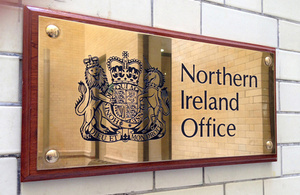- £500,000 General Export Facility from UK Export Finance helped overcome coronavirus (COVID-19) supply chain challenges
- Family-run Forrest Fresh’s export operations have increased eight-fold as a result, safeguarding local jobs
- The business, which supplies Cadbury and Walkers, is now pursuing bigger contracts across Europe, the Middle East and South-East Asia
One of the UK’s leading food and drink distribution specialists, Forrest Fresh Foods Ltd, has secured a half million pound cash injection from Barclays, backed by UK Export Finance (UKEF), to finance its global growth.
Rochdale-based Forrest Fresh Foods Ltd, a family run business, supplies over 5,000 lines of Britain’s best-loved food, drink, confectionary and household products to retail and leisure outlets across the UK and to over 50 countries worldwide. Brands supplied by the business include Cadbury, Robinsons Juice and Walkers.
Thanks to UK government support, the company has increased its sales by 70%, overcome COVID-19 supply chain disruption and continued selling its British produce to the world.
Chris Craven, Managing Director of Forrest Fresh Foods Ltd, said:
Demand for our products has never been so high – and we’ve seen international interest in some of the UK’s most renowned brands rise over the last few years. The UKEF support has been a breath of fresh air in what has been a difficult 12 months to navigate, enabling us to sustain our buying power and continue to price products competitively for our customers.
Mike Freer MP, Minister for Exports, said:
There’s a world of opportunity for UK exporters, and global demand for Britain’s best-loved food and drink brands continues to grow at an impressive pace. UKEF is committed to helping UK business such as Forrest Fresh Foods to seize this demand, as we aim to reach £1 trillion in exports annually.
The General Export Facility (GEF) was first available to UK businesses in March 2021 to support exporters through the pandemic. It was designed to provide exporting SMEs access to working capital support to make UKEF’s support more flexible and accessible. Over £120 million worth of loans have been issued in the first nine months.
When the pandemic and global lockdowns started to hit supply chains, Forrest Fresh Foods encountered delays which threatened to make the time-sensitive goods supplied by the business unsuitable for sale. To bolster operations and ease cash flow, it was successful in securing a GEF of £500,000 in funding from Barclays with an 80% guarantee from UKEF.
The support has allowed the business to pursue and fulfil more ambitious exporting contracts, with Europe, the Middle East and South-East Asia set to be target markets in 2022 and beyond.
UKEF’s GEF support for the business builds on an existing relationship, with the export credit agency having previously provided £500,000 in funding to Forrest Fresh Foods. As a result of the UK government backing, export operations have increased from 3% of overall revenue in 2017 to over 25% in 2021.
Forrest Fresh Foods Ltd now turns over in excess of £60 million per year, with more revenue streams to be unlocked in different markets in the next 12 months. The business is planning to increase its headcount by 27% in 2022, as a result of UKEF support bolstering job prospects in the region.
About UKEF’s General Export Facility
For full details of GEF, please visit the website here.
About UK Export Finance
UK Export Finance is the UK’s export credit agency and a government department, working along-side the Department for International Trade as an integral part of its strategy and operations.
Established in 1919, it exists to ensure that no viable UK export should fail for a lack of finance from the private market. It provides finance and insurance to help exporters win, fulfil and get paid for export contracts.


